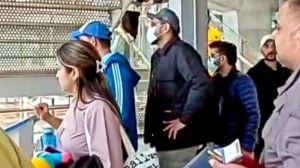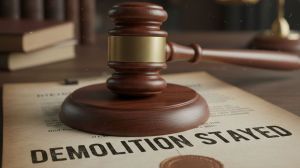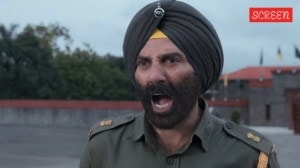
Why in the news?
Union Home Minister Amit Shah chaired the 27th Eastern Zonal Council on Thursday (10th July) in Ranchi, Jharkhand. The Eastern Zonal Council consists of four eastern states — Jharkhand, Bihar, Odisha, and West Bengal.
Shah said the number of zonal council meetings rose to 63 between 2014 and 2025 as compared to 25 between 2004 and 2014. Highlighting its significance, he said that zonal councils have transformed from being mere discussion forums into “engines of cooperation”, noting that 83% of issues taken up in their meetings have been resolved.
Key Takeaways:
1. The idea of creation of Zonal Councils was mooted by the first Prime Minister Jawaharlal Nehru in 1956 when during the course of debate on the report of the States Reorganisation Commission, he suggested that the states proposed to be reorganised may be grouped into four or five zones having an Advisory Council “to develop the habit of cooperative working” among these states, say the records of the Ministry of Home Affairs (MHA).
2. In the light of the vision of Pandit Nehru, five Zonal Councils were set up as per Part III of the States Reorganisation Act, 1956. They are statutory bodies.
3. The present composition of the Zonal Councils is as follows:
Story continues below this ad
➣ The Eastern Zonal Council, comprising the States of Bihar, Jharkhand, Orissa, and West Bengal.
➣ The Northern Zonal Council, comprising the States of Haryana, Himachal Pradesh, Punjab, Rajasthan, National Capital Territory of Delhi, Union Territory of Chandigarh, Union Territory of Jammu & Kashmir and Union Territory of Ladakh.
➣ The Central Zonal Council, comprising the States of Chhattisgarh, Uttarakhand, Uttar Pradesh and Madhya Pradesh;
➣ The Western Zonal Council, comprising the States of Goa, Gujarat, Maharashtra and the Union Territory of Dadra & Nagar Haveli and Daman & Diu.
Story continues below this ad
➣ The Southern Zonal Council, comprising the States of Andhra Pradesh, Karnataka, Kerala, Tamil Nadu, and the Union Territory of Puducherry.
4. Along with this, the North Eastern Council (NEC) was constituted as a statutory advisory body under the NEC Act 1971 (84 of 1971) and came into being on the 7th November, 1972 at Shillong. It comprises Assam, Arunachal Pradesh, Manipur, Tripura, Mizoram, Meghalaya and Nagaland as its members. The state of Sikkim, which was earlier in the Eastern Zonal Council was included in the North Eastern Council in 2002.
5. The composition of each council is as follows:
(a) The Union Home Minister is the chairman of each of these council.
(b) The Chief Ministers of the states included in each zone act as Vice-Chairman of the Zonal Council for that zone by rotation, each holding office for a period of one year at a time.
Story continues below this ad
(c) The Chief Minister and two other ministers as nominated by the Governor from each of the states, and two members from Union Territories included in the zone.
(d) One person nominated by the planning commission for each of the Zonal Councils, the Chief Secretaries, and another officer nominated by each of the states included in the Zone.
6. In 2018, the Union Cabinet, chaired by Prime Minister Narendra Modi, approved the nomination of the Union Home Minister as ex-officio chairman of the North Eastern Council and the Minister of Development of North Eastern Region (DoNER) to serve as Vice Chairman of the Council.
7. The MHA has said that the Zonal Councils provide an excellent forum where irritants between the Centre and States and among states can be resolved through free and frank discussions and consultations. The councils act as regional forums of cooperative endeavour for states linked with each other economically, politically and culturally.
Story continues below this ad
- 01
What is the difference between a constitutional and a statutory body?
Constitutional bodies are institutions or authorities whose powers, duties, and structures are explicitly defined in the Constitution. Their roles extend beyond mere administrative functions, as they are designed to serve as checks and balances on governmental power. The Inter-State Council is a constitutional body.
Whereas, the Statutory bodies are institutions established by an act of Parliament or state legislatures, deriving their authority from legislation rather than directly from the Constitution. The Zonal Councils are statutory bodies.
BEYOND THE NUGGET: The Inter-State Council
1. The Inter-State Council was established under Article 263 of the Constitution, which states that the President may constitute such a body if a need is felt for it. The Council will be charged with the duty of —
(a) inquiring into and advising upon disputes which may have arisen between States;
(b) investigating and discussing subjects in which some or all of the States, or the Union and one or more of the States, have a common interest; or
(c) making recommendations upon any such subject and, in particular, recommendations for the better coordination of policy and action with respect to that subject,
Story continues below this ad
The Council is meant to serve as a forum for discussions among various governments.
 Prime Minister Narendra Modi with the other Cabinet Ministers during the eleventh Inter-State Council, which was held in 2016. (Source: PTI). (Source: PTI)
Prime Minister Narendra Modi with the other Cabinet Ministers during the eleventh Inter-State Council, which was held in 2016. (Source: PTI). (Source: PTI)
2. Notably, the Inter-State Council is not a permanent constitutional body. In 1988, a Commission was constituted under the Chairmanship of Justice R. S. Sarkaria on the Centre-State relations. It suggested that —
(a) A permanent Inter-State Council called the Inter-Governmental Council (IGC) should be set up under Article 263.
(b) The IGC should be charged with the duties set out in clauses (b) and (c) of Article 263, other than socio-economic planning and development.
Story continues below this ad
3. The Prime Minister is the chairman of the Council, whose members include the Chief Ministers of all states and UTs with legislative assemblies, and Administrators of other UTs. Six Ministers of Cabinet rank in the Centre’s Council of Ministers, nominated by the Prime Minister, are also its members.
4. The Inter-State Council has met eleven times since 1990. The last meeting was held in 2016, where the recommendations of the Punchhi Commission on Centre-State Relations, use of Aadhaar as an identifier, and use of DBT for providing Subsidies, Benefits, and Public Services were some of the prominent issues that were discussed.
5. The Standing Committee is also constituted to have continuous consultation and process matters for consideration of the Council; process all matters pertaining to Centre-State Relations before they are taken up for consideration in the Inter-State Council, and monitor the implementation of decisions taken on the recommendations of the Council. The Committee was last constituted in November 2024.
Post Read Question
Which of the following bodies does not/do not find mention in the Constitution? (UPSC CSE 2013)
1. National Development Council
2. Planning Commission
3. Zonal Councils
Select the correct answer using the codes given below.
(a) 1 and 2 only
(b) 2 only
(c) 1 and 3 only
(d) 1, 2 and 3
Story continues below this ad
(Source: Zonal councils have transformed into engines of cooperation: Amit Shah, Established as ‘antidote’ to ‘linguistic hostility and bitterness’: what are zonal councils?, Explained: What is the Inter-State Council?, What are constitutional, statutory, and non-statutory bodies?, Expert Explains: How the Northeast was ‘invented’, 52 years ago)
Subscribe to our UPSC newsletter. Stay updated with the latest UPSC articles by joining our Telegram channel – IndianExpress UPSC Hub, and follow us on Instagram and X.
🚨 Click Here to read the UPSC Essentials magazine for June 2025. Share your views and suggestions in the comment box or at manas.srivastava@indianexpress.com🚨



 Prime Minister Narendra Modi with the other Cabinet Ministers during the eleventh Inter-State Council, which was held in 2016. (Source: PTI). (Source: PTI)
Prime Minister Narendra Modi with the other Cabinet Ministers during the eleventh Inter-State Council, which was held in 2016. (Source: PTI). (Source: PTI)






























